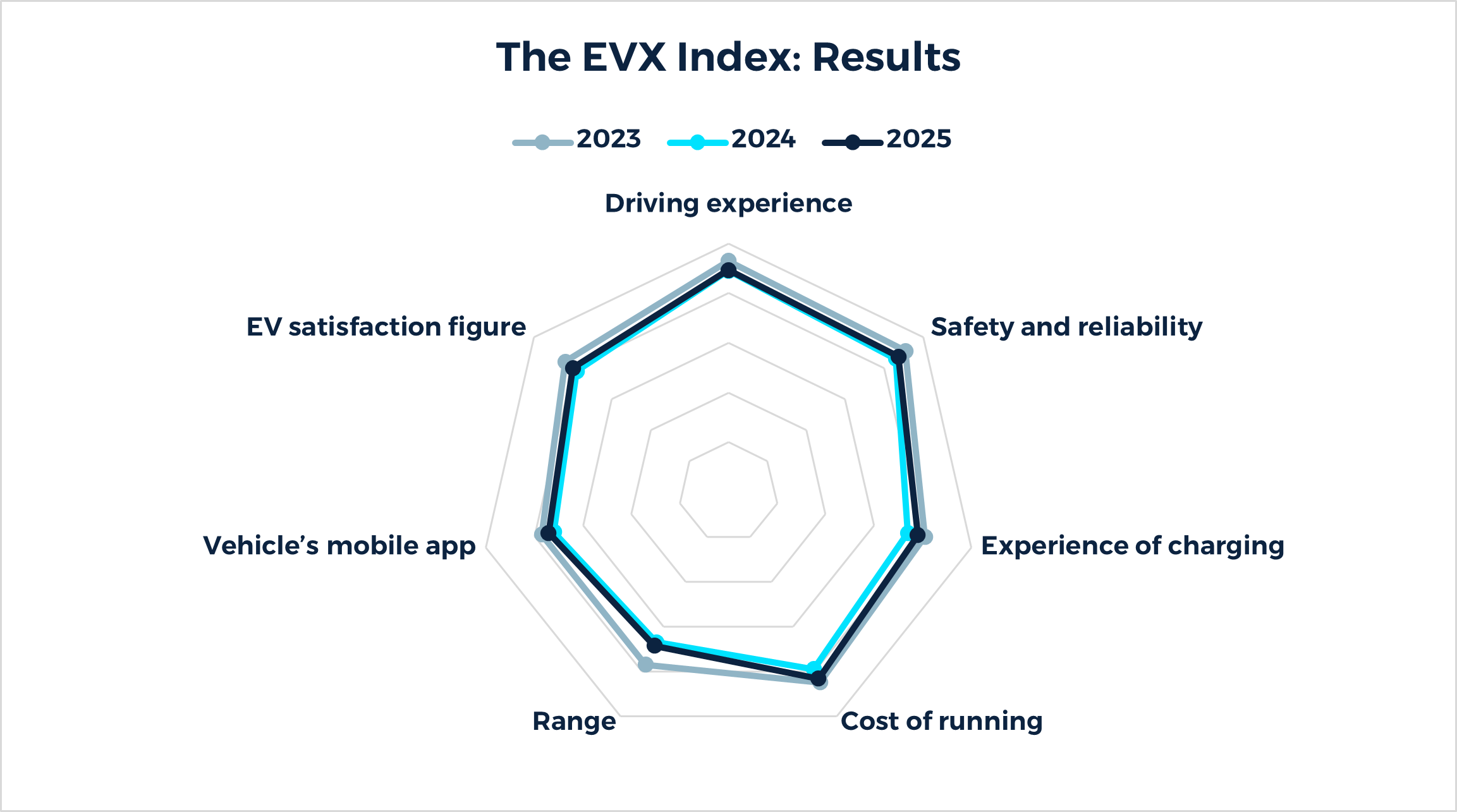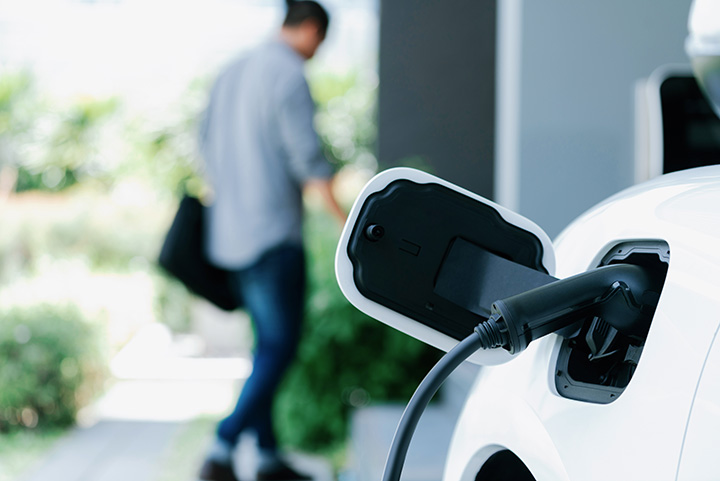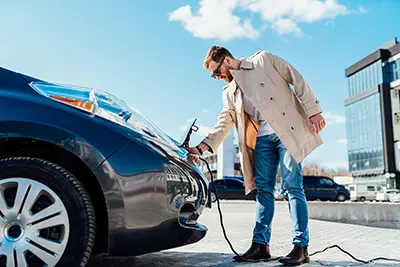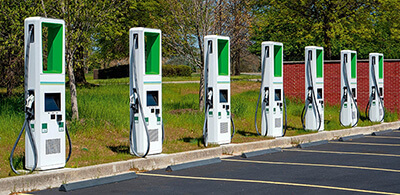3,650+
responses from our customers
88%
of EV drivers are happy in their vehicle
Overview
For many years, Zenith has been a leader in the UK’s transition to electric vehicles. We currently manage 170,000 vehicles with operations spanning the breadth of the automotive market. 27,871 (46% of our Corporate and Consumer funded fleet) of these are EVs.
About the EVxperience report
We commissioned research practitioners Maru/Matchbox to conduct an independent survey of more than 3,650 Zenith and ZenAuto EV drivers, with the aim of learning about the day-to-day realities of driving an electric vehicle, and how attitudes and trends are changing.
Unsurprisingly, the EV landscape has changed considerably since the first iteration of our EVXperience report in 2023. From the enthusiasm of those early adopters, changes in government policy, the shifting of deadlines, and a growing tide of EV ‘myths’ have impacted consumer confidence and slowed momentum, especially in the retail market.
However, despite this, our latest report has showed that 88% of current EV drivers are happy in their vehicle, with three quarters (75%) stating they wouldn’t go back to a petrol or ice vehicle if given the choice – a positive figure which reflects the true lived experience of an EV.
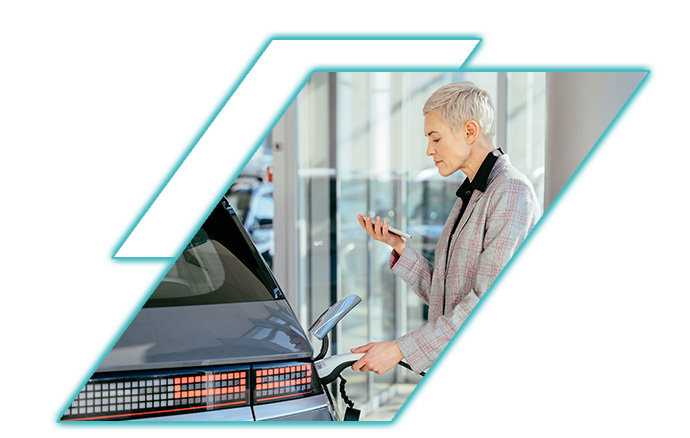
We have also polled 2,200 petrol/diesel vehicle drivers on their own attitudes, which has allowed us to compare and contrast with equivalent EV measures. Interestingly, despite the Government’s manifesto pledge to reinstate the ban of new petrol and diesel vehicles back to 2030, the data showed that 67% of current petrol/diesel vehicles have no immediate plans to transition to electric. So, with a deadline fast approaching, but a lack of urgency from drivers, what needs to be done to help accelerate our journey to net zero?
It’s vital we make the most of the next five years and our report will be shared with government and relevant bodies to demonstrate the importance of ensuring a seamless transition to electric vehicles for all drivers.
In the press
Cost is the biggest barrier to going green
Forget range anxiety, the biggest barrier to going electric is the vehicle cost. Our EVXperience report found that more than a third (35.8%) of drivers would transition back if the monthly cost of an EV became more expensive than a petrol and diesel equivalent, with 34.4% reverting if there were no beneficial tax incentives.
Key highlights
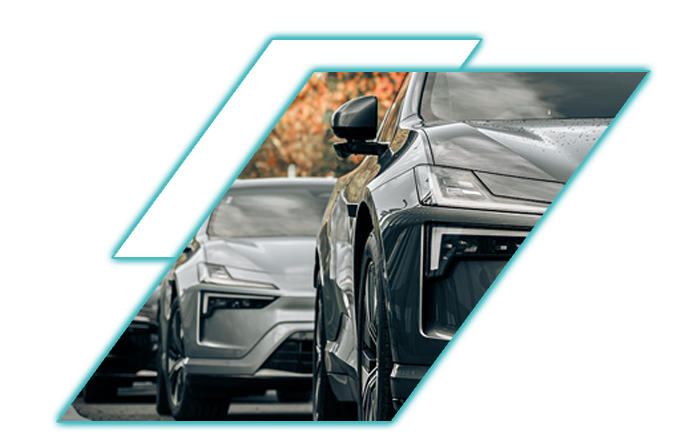
Key Experience Indicators
The research found that while drivers were more satisfied than last year’s report across the six key performance indicators (8.0 vs 7.7). The most significant increase was on running cost (8.33 vs 7.85) and charging experience (7.8 vs 7.4). However, the ratings are still down when compared to the EVX’s debut report from 2023 (8.0 vs 8.4).
